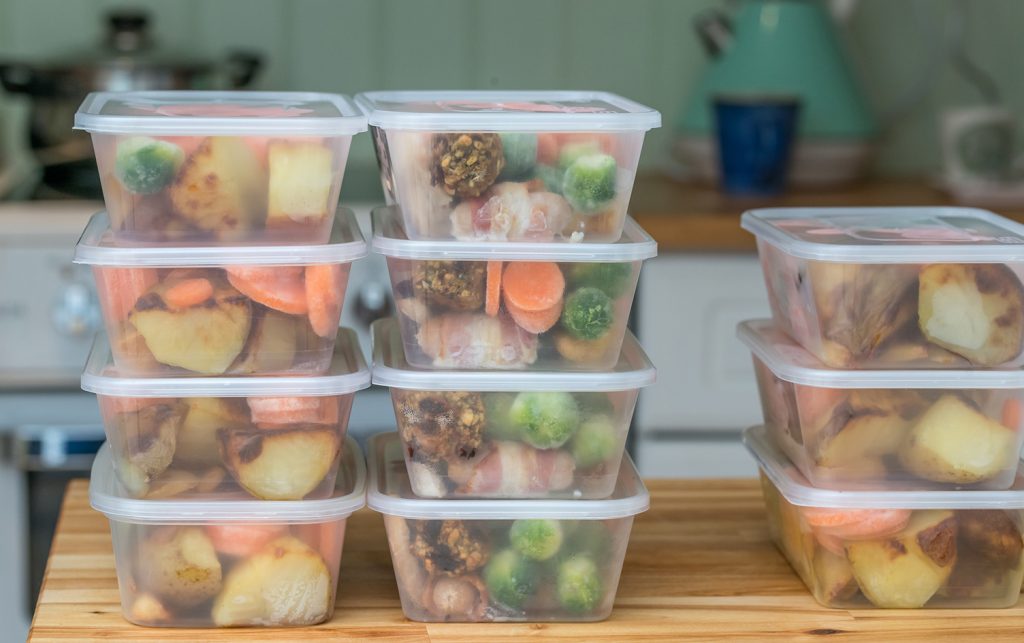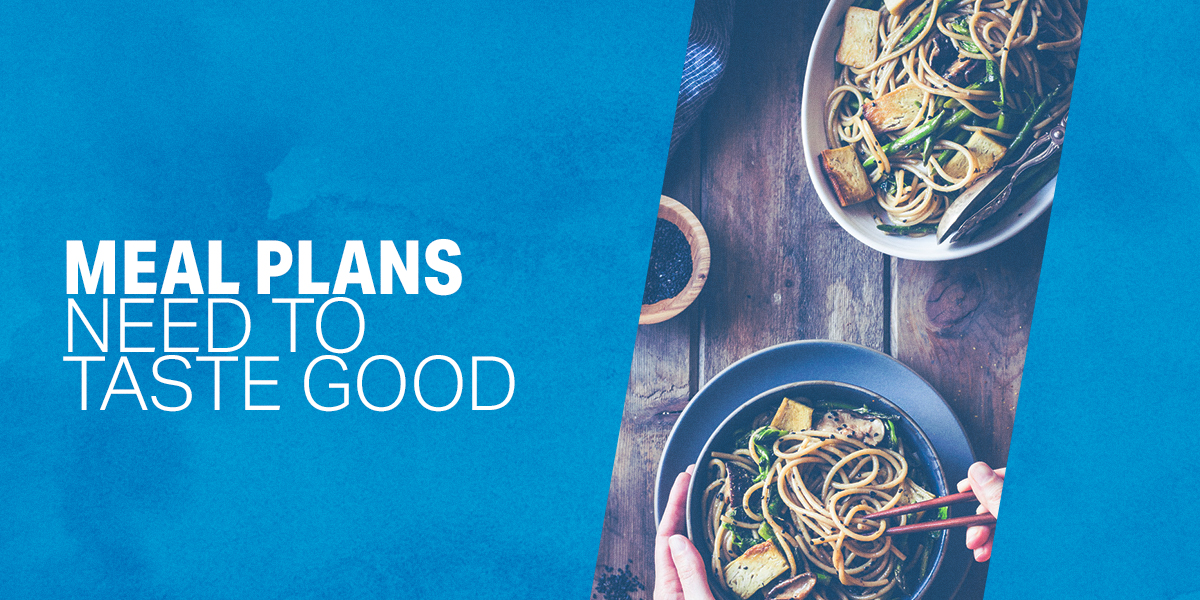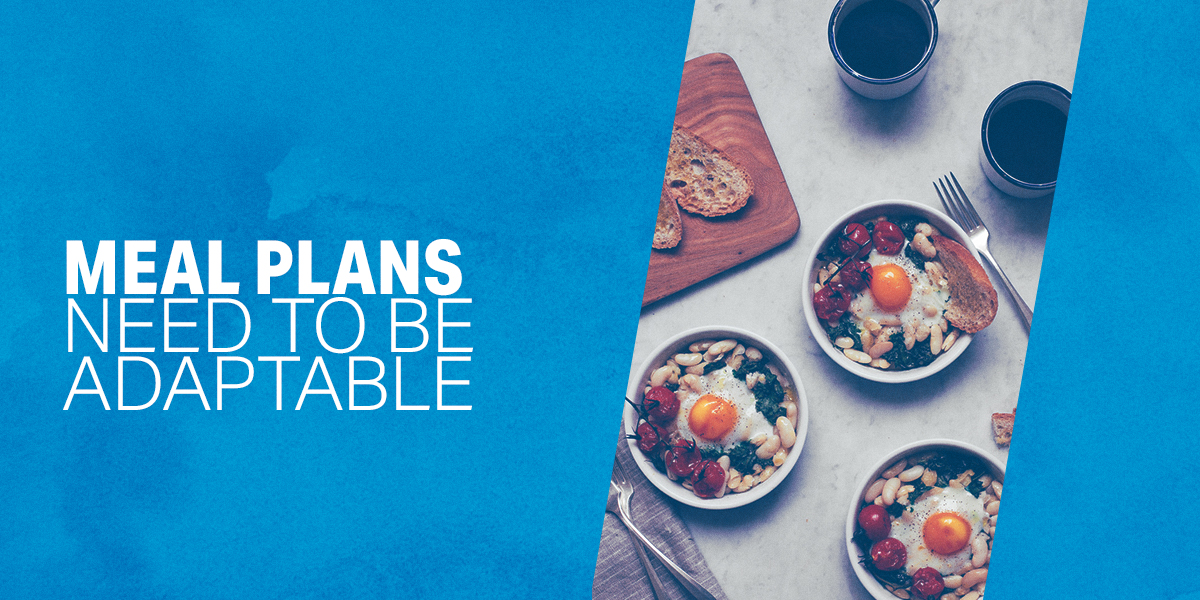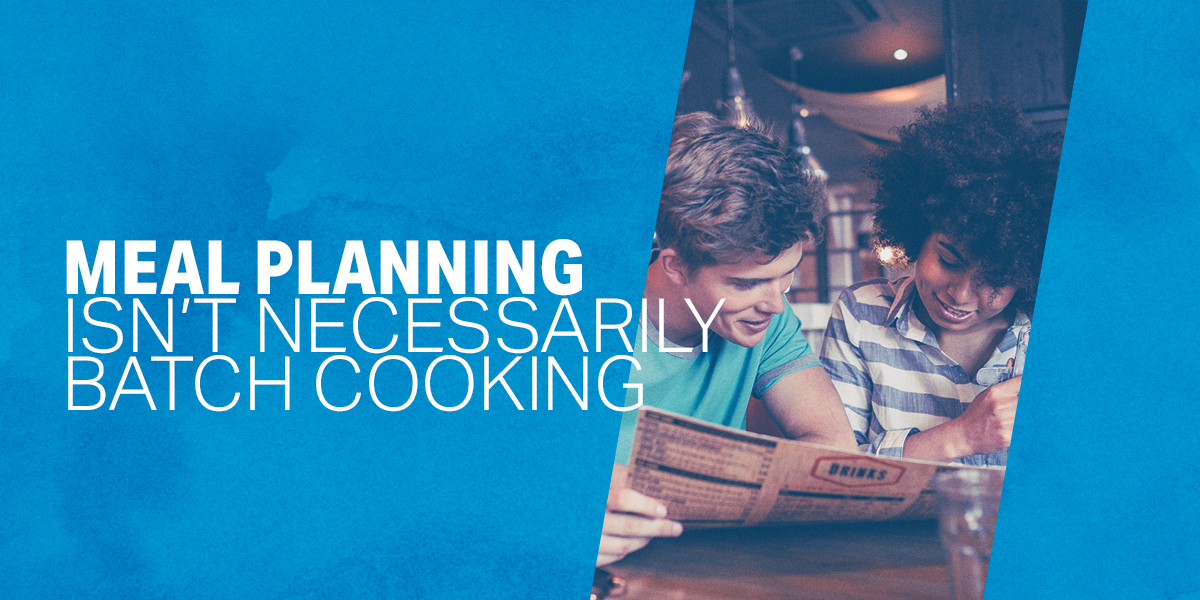
When it comes to losing weight, meal planning is essential. Put another way: “Dreaming doesn’t get you to a goal. You have to put a plan in place,” says Ashley Koff, RD, founder of the Better Nutrition Program.
In a study of 40,500 adults, published in The International Journal of Behavioral Nutrition and Physical Activity earlier this year, more than half of the participants reported they meal plan at least occasionally. Those who did so were more likely to eat a healthy diet and maintain a healthy weight. There are several possible reasons for this association, study authors say.
First, when you plan, you nix the “What should I eat for dinner today?” dilemma that keeps many from making their own meals, and resorting to overeating when they walk through the door at dinnertime. Second, meal planners may strategically pick recipes that take, say, less than 20 minutes to make, which means “I have no time; calling delivery is quicker,” is no longer a valid cop-out. Third, when you plan, you’re prepared and have all necessary ingredients on hand.
Meal planning squashes pretty much every excuse you have for not cooking. But just like your overall weight-loss plan, your meal plan needs to be individualized to work. So forget what you’ve heard about color-coded plastic containers and marathon cooking sessions by mastering these three meal-planning rules.

“We think we need to be deprived to lose weight, but you’ve got to plan your meals to be delicious,” Koff says. After all, you’ll only eat that zucchini pasta with marinara if it actually appeals to you. Otherwise you’ll be calling your favorite pizza place.
The hard thing about this is you can’t always anticipate what will taste good later in the week. Just because you crave tacos on Sunday doesn’t mean you’ll want them on Wednesday. “So learn how you can sub out different options that still meet your objectives for a healthy meal,” Koff says. This could mean everything from having lunch for breakfast and a smaller version of breakfast for snack, to choosing steak rather than chicken and amaranth rather than brown rice at dinner.
Delicious meal plans also include a brownie for dessert on Thursday or French toast and a mimosa for brunch with your friends on Saturday. Ditch the idea of deprivation and let yourself be excited about what you’re going to eat.

As much as meal planning is about, well, planning, it’s also about learning how to adjust when life happens. Specifically, “it’s about learning how to make decisions in key moments so that, in the future, you know how to navigate those situations,” Koff says.
Here’s our advice: Look at your day or week and be realistic. It’s not just listing each meal for each day. It’s thinking, ‘I know I have a work dinner tonight, so if I have the ravioli, what do I have for my snack?’ How do you make sure you cover your nutritional bases to stay satisfied and healthy? (Yes, you can have both.)
As you develop that skill, you’ll be able to better deal when life happens and you leave your healthy lunch at home or your manager declares she’s treating everyone to lunch. And you’ll know how to select an option from a restaurant near your office or off the menu that still meets your nutritional goals for a particular meal.
READ MORE > 17 WEEKNIGHT DINNERS THAT REGISTERED DIETITIANS ACTUALLY COOK

Now about those color-coded containers. For some people, prepping meals for the week on a Sunday is easy. This could mean cooking and portioning out entire meals, or it could mean prepping vegetables, proteins and carbs and keeping them separately in the fridge. Then, when it’s meal time, you toss things together and add a fat and seasonings.
For others, this screams extreme boredom. “You know there will be a day that week when you want to take that container and throw it at someone,” Koff says. This can backfire, especially if you get on the scale and don’t see any change, despite the fact that you’ve been eating kale, cauliflower rice and a palm-sized portion of fish.
“You have to determine what feels easy for you, and what has stick-with-it-ness, so your strategy won’t fizzle out after a week or two,” says Cynthia Sass, RD, author of “Slim Down Now.” If that’s a weekend warrior cooking session, great. But that’s not the only way to succeed. So our advice? Figure out your personalized meal plan based on what’s healthy and delicious to you and consider talking to a registered dietitian for help.
The post 3 Time-Tested Meal-Planning Rules for Weight Loss appeared first on Under Armour.
(via MyFitnessPal Blog)






